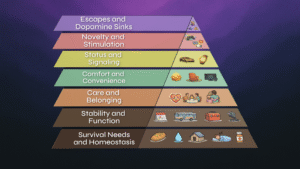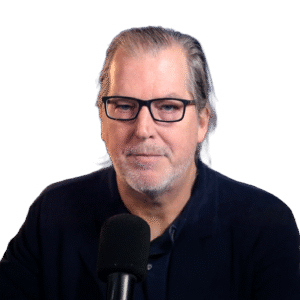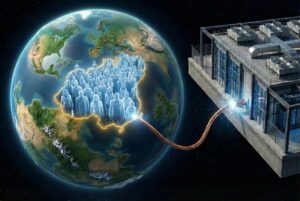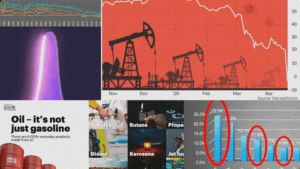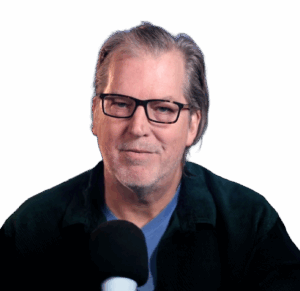
#70 | Frankly
Ask Me Anything – Your Questions About TGS Answered
The content of The Great Simplification (on Youtube and in real life) can be complex, nuanced and multi-faceted. In today’s Frankly, Nate offers reflections on a selection of viewers’ direct questions about the myriad topics covered on this channel.
The goal of this podcast is to integrate the head, the heart and the hands by building a generative conversation between many more humans. The learning process about upcoming constraints and opportunities will continue to be interactive and ongoing. By offering insightful responses to questions both personal and professional, this Frankly (and future AMAs) directly engages our online community to better understand the nuances of the reality we face and what might be some realistic pathways ahead.
What exactly is the relationship between energy and economic growth? What has Nate learned over the last 2.5 years of podcast recordings and what could be done differently? How might we better organize our infrastructure, communities and local politics to prepare for the upcoming Great Simplification? And of course, the question we’ve all been asking ourselves… How are Nate’s ducks??
Support The Institute for the Study of Energy and Our Future
In French, we have a motto that says that a simple drawing is often better than a long explanation. Jean-Marc Jancovici Carbone 4 President
That’s very understandable because with left atmosphere thinking, one of the problems is that you see everything as a series of problems that must have solutions. Iain McGilchrist Neuroscientist and Philosopher
We can’t have hundreds and hundreds of real relationships that are healthy because that requires time and effort and full attention and awareness of being in real relationship and conversation with the other human. Nate Hagens Director of ISEOF
This is the crux of the whole problem. Individual parts of nature are more valuable than the biocomplexity of nature. Thomas Crowther Founder Restor
Show Notes & Links to Learn More
Download transcript00:20 – Substack link
01:38 – EPA figures
01:58 – Electricity accounts for 20% of global energy use
02:19 – Graph on US electricity use 1950-2022
02:30 – Graph on energy consumption by source
02:50 – Graph on correlation between GDP, materials and energy Figure 1
03:15 – Graph on GDP and energy growth ratios Figure 2, additional info: scaling of energy to GDP
03:46 – Energy embodied in imports
04:07 – The average American uses 57 barrel of oil equivalents of fossil fuels/year + *17 from imports
04:44 – Emergence
05:56 – Paul Ehrlich, TGS Episode
06:25 – William Rees, TGS Episode
06:28 – Overshoot
06:46 – Corey Bradshaw, TGS Episode
07:00 – Frankly on Overshoot
07:29 – Bottlenecks
08:00 – Financial bend or break
08:25 – Financial overshoot, complexity, geopolitics, the social contract: Four Horsemen
10:27 – Global population distribution
11:22 – Dopamine + Frankly on the Behavioral Stack
12:45 – Red Wing farmers’ market
12:57 – EROI, Frankly on EROI
14:00 – Dunbar’s number
14:44 – Carbon Pulse, Frankly on the Carbon Pulse
15:56 – Frankly on Nuclear Conflict
16:20 – Bond yields and debt expectations
17:25 – Move towards totalitarianism in UK
17:50 – Carbon tax + direct vs indirect carbon emissions + consumption increases with income
18:40 – Worldwide nuclear weapon stockpiles, **12,121 nuclear warheads estimated as of early 2024
19:00 – Proud Prophet + AI models and nuclear conflict
19:55 – Johan Rockström, TGS Episode
20:22 – John Holdren
21:12 – Advance policy
22:33 – Renewables can’t power this civilization
25:48 – Iain McGilchrist, TGS Episode
27:37 – Energy Blindness
28:29 – Overton window
28:37 – The Matter with Things + cognitive biases
31:00 – Superorganism
32:02 – Hannah Ritchie, William Nordhaus, Steven Pinker
32:40 – Decline in global poverty
33:22 – Frankly on Wide Boundary Lenses
34:42 – Joe Rogan, Lex Fridman
35:18 – Farmland being turned into data centers
35:56 – Cantillon effect
37:18 – Renewables can power a great civilization, just not this civilization
37:35 – Energy use in US
38:05 – Narrative that renewables can replace and grow our current energy footprint
38:43 – Average American house has over 60 gadgets plugged in

